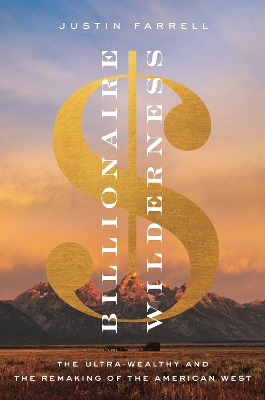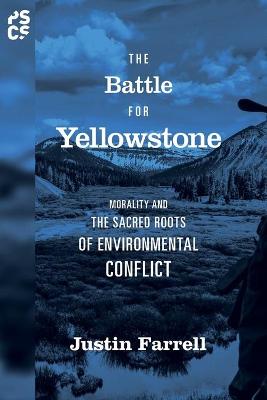Princeton Studies in Cultural Sociology
2 total works
A revealing look at the intersection of wealth, philanthropy, and conservation
Billionaire Wilderness takes you inside the exclusive world of the ultra-wealthy, showing how today's richest people are using the natural environment to solve the existential dilemmas they face. Justin Farrell spent five years in Teton County, Wyoming, the richest county in the United States, and a community where income inequality is the worst in the nation. He conducted hundreds of in-depth interviews, gaining unprecedented access to tech CEOs, Wall Street financiers, oil magnates, and other prominent figures in business and politics. He also talked with the rural poor who live among the ultra-wealthy and often work for them. The result is a penetrating account of the far-reaching consequences of the massive accrual of wealth, and an eye-opening and sometimes troubling portrait of a changing American West where romanticizing rural poverty and conserving nature can be lucrative—socially as well as financially.
Weaving unforgettable storytelling with thought-provoking analysis, Billionaire Wilderness reveals how the ultra-wealthy are buying up the land and leveraging one of the most pristine ecosystems in the world to climb even higher on the socioeconomic ladder. The affluent of Teton County are people burdened by stigmas, guilt, and status anxiety—and they appropriate nature and rural people to create more virtuous and deserving versions of themselves. Incisive and compelling, Billionaire Wilderness reveals the hidden connections between wealth concentration and the environment, two of the most pressing and contentious issues of our time.
Tracing in unprecedented detail the moral causes and consequences of large-scale social change in the American West, he describes how a "new-west" social order has emerged that has devalued traditional American beliefs about manifest destiny and rugged individualism, and how morality and spirituality have influenced the most polarizing and techno-centric conflicts in Yellowstone's history. This groundbreaking book shows how the unprecedented conflict over Yellowstone is not all about science, law, or economic interests, but more surprisingly, is about cultural upheaval and the construction of new moral and spiritual boundaries in the American West.

